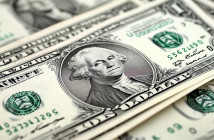After the worst drought in Asian markets since 2008, the markets stood up, seemingly unfazed without any long-lasting effects.
The Yuan’s value was set to 7.0039 against every dollar by the People’s Bank of China in the early hours of Thursday. Even with that considerable subtraction to the rate, the yuan was not deemed as feeble as some had expected, giving hopes and aspirations to investors that China was not on its way to start a full-scale financial war. The blow to the yuan caused it to plummet beneath the critical 7 levels on Monday, which sent worldwide markets tumbling amid fears it was the initial phase in a cash war and drove the U.S. Treasury Department to name China a money controller just because since 1994.
Sometime later on Thursday, it was revealed by China that they were having better results in the trade, which indicated that the July exports had a raise of 3.3% year-over-year while import rates fell by 5.6%, with a gross exchange rate excess of $45.06 billion. Specialists had been anticipating fares to fall 2% from a year ago, and imports to sink 7.3%, with an exchange excess of $38.7 billion, as indicated by the Wall Street Journal.
Every investor was taken aback on Wednesday by the sudden influx of loan fee cuts by national banks in India, Thailand and New Zealand. That adds to rate cuts since May in Australia, South Korea, and the Philippines because of dread U.S.- Chinese exchange strain will imprint worldwide financial development.
The rate of the yuan plummeted further on Tuesday and Wednesday, it was assured by the Chinese central bank that that was the end of the declining rates and the exchange rate of the yuan will remain untouched.



